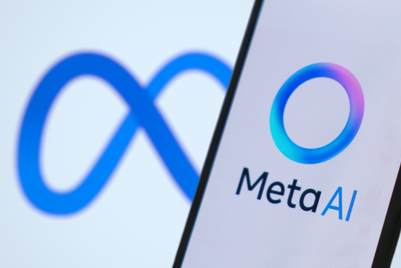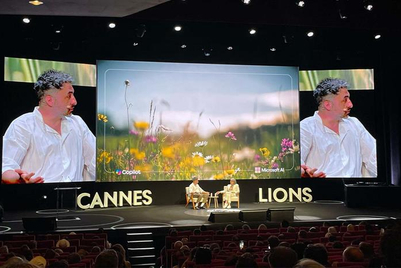
Artificial Intelligence continues to be on everyone’s lips, with companies such as Google, Alibaba, Facebook, Amazon, Microsoft, Twitter, IBM and many others purchasing or investing in robotic and machine learning startups, or developing artificial intelligence research labs and pulling the best AI minds from academia.
When the average person thinks about artificial intelligence, it is framed by Hollywood movies such as Terminator, The Matrix, iRobot, Ex Machina and many others. Always a blend of deadly robotics and AI whose sole intention is to eradicate humanity.
Interestingly, the movie Her is closer to the emergent AI we are starting to experience today: the perfect personal assistant that manages your life. The race to develop deep-learning capabilities, artificial intelligence or an artificial neural network that thinks like a human is happening right now.
The global market for artificial intelligence was valued at US$900 million in 2013, and predictions are that it will grow exponentially over the next decade. In 2014 US$309.2 million was invested in 16 startup AI companies that all defined themselves as doing machine learning or deep learning. This is up from US$14.9 million and two companies in 2010, according to CB insights for Bloomberg News.
The focus of these companies is to create artificial neural networks: networks that learn, anticipate, suggest and include broad technologies such as speech recognition, image recognition and natural language processing.
Facebook and Google are currently building enormous neural networks that can instantly recognise faces, cars, buildings and other objects in digital photos. But they haven’t stopped there. These networks can recognise speech, translate from one language to another, target ads based on preference and behaviour and—if you read the news recently—they can apparently create images or art, though art is a subjective word.
You may still be thinking: Yeah, so what? These networks can make pictures, learn to play games by themselves, recommend products or relevant information based on my digital behaviour and use my diary and GPS location to manage my day. But they are not really ‘thinking’, or won’t affect my life.
Wrong.
A study done by Oxford University in 2013 found that almost 47 per cent of all jobs in the US could be replaced by artificial intelligence in the very near future. We are in the dawn of the artificial intelligence era, an era that will disrupt every interaction in every industry.
Which brings us to our industry. An industry that is already going through significant transformation due to the impact of digital.
The growth of predictive analytics to better align consumers and brands, along with programmatic buying, is quickly changing the shape of how we approach marketing.
Transparency Market Research predicts the global market for predictive analytics software will be US$6.5 billion in 2019, up from $2 billion in 2012. eMarketer states that in 2015, 55 per cent of all digital advertising dollars will be driven by programmatic initiatives, where computer speed and machine learning take precedence over human guesswork. By 2016 that number will be at 63 per cent, representing over $20 billion in programmatic ad buys.
Gut feel is being overtaken by data-based decisions, fuelled by the 2.5 quintillion bytes of data created every day by people moving between screens, consuming information and making buying decisions.
However, the real transformation in our industry will be the application of artificial intelligence, providing a ‘thinking’ layer that means we will be able to process data, identify patterns, make smarter strategies and create content faster, more efficiently and effectively than humans currently can.
This will be driven by a whole new raft of startups that are using artificial intelligence to build solutions for the marketing industry, solutions that will challenge skills as we currently see as innately human—copywriting, strategy, deriving insights and many others.
To take a few examples.
- Persado uses AI to generate the most persuasive language for communications designed to drive action, eliminating the guesswork of writing. It uses math and science to discover the emotions most likely to drive a response from customers. So basically, copywriting. It has received US$36 million in funding.
- Sentient uses advanced AI technology and massively scaled, distributed evolutionary computation to identify and answer critical problems in new and novel ways. It learns and adapts, helping people and businesses make smarter decisions, according to the company. Sorry, Ben, looks like we have a new strategic director for Vizeum APAC. It has received US$143 million in funding.
- Quill uses AI to analyse big data, determining what matters to your business, and then generates meaningful content with a narrative in conversational language that is supposedly indistinguishable from a human-written one. Sounds like my future research and insights team. The company has received US$32.4 million in funding.
And the list of AI and neural-network applications goes on, predicting performance potential on content and recommending relevant topics (InboundWriter), using billions of time-sensitive intent interactions to understand purchase funnels (6sense) and improving ROI in all digital channels through AI (Rocket Fuel), and so on.
Stephen Hawking warned the rise of Artificial Intelligence could spell the end of the human race, and Elon Musk (Tesla Motors CEO) has expressed concerns that Google might "produce something evil by accident". Their voices are not alone in raising this alarm.
I can’t speak for that, but without doubt our industry, an industry historically built solely on the power of human smarts and interaction, is going to be radically disrupted. My advice is take the time to understand the implications and start shaping your business now. We are.
 This article is part of the Campaign Innovate series, a collection of articles that examine the way innovation, startups and technology are affecting the advertising and marketing industry.
This article is part of the Campaign Innovate series, a collection of articles that examine the way innovation, startups and technology are affecting the advertising and marketing industry.
Campaign Asia-Pacific has also launched the Campaign Innovate competition, an event that aims to provide a platform for Asia-Pacific's startups to pitch to some of the world's biggest brands.


.jpg&h=334&w=500&q=100&v=20250320&c=1)



.png&h=334&w=500&q=100&v=20250320&c=1)



.png&h=334&w=500&q=100&v=20250320&c=1)

.jpg&h=268&w=401&q=100&v=20250320&c=1)



.png&h=268&w=401&q=100&v=20250320&c=1)
.png&h=268&w=401&q=100&v=20250320&c=1)

